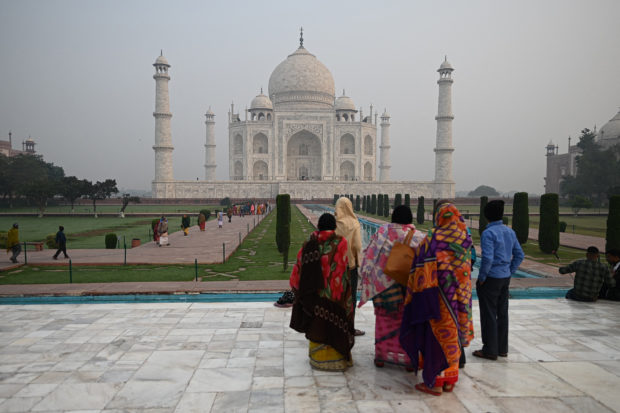India welcomes back tourists but smog shrouds Taj Mahal

Visitors walk inside the Taj Mahal amid smoggy conditions in Agra on November 16, 2021. AFP
‘Still suffering a lot’
The Taj Mahal is an enduring symbol of eternal love and India’s main tourist attraction, built in the 17th century by Mughal emperor Shah Jahan to honour the memory of his favourite wife. But it was closed for long stretches from March 2020 after successive waves of Covid infections brought the country’s public health system close to collapse and prompted drastic lockdowns. Strict sanitary measures remain in place at the site, where visitors are strictly instructed not to touch the monument’s sparkling marble surface. Tour guide Nitin Singh said he and his colleagues were impatient to welcome foreign travellers, and told AFP he had barely worked for nearly two years. “All other businesses, all their people have started working, but the hospitality industry is still suffering badly,” he said “I really hope that things will get better soon.” After a twenty-month closure due to the pandemic, India on Monday reopened its borders to visitors from nearly 100 countries with reciprocal travel arrangements. But tour operators say demand is extremely sluggish, thanks to high ticket prices and remaining restrictions on travellers from Britain, China and elsewhere.
For more news about the novel coronavirus click here.
What you need to know about Coronavirus.
For more information on COVID-19, call the DOH Hotline: (02) 86517800 local 1149/1150.
The Inquirer Foundation supports our healthcare frontliners and is still accepting cash donations to be deposited at Banco de Oro (BDO) current account #007960018860 or donate through PayMaya using this link.
READ NEXT
EDITORS' PICK